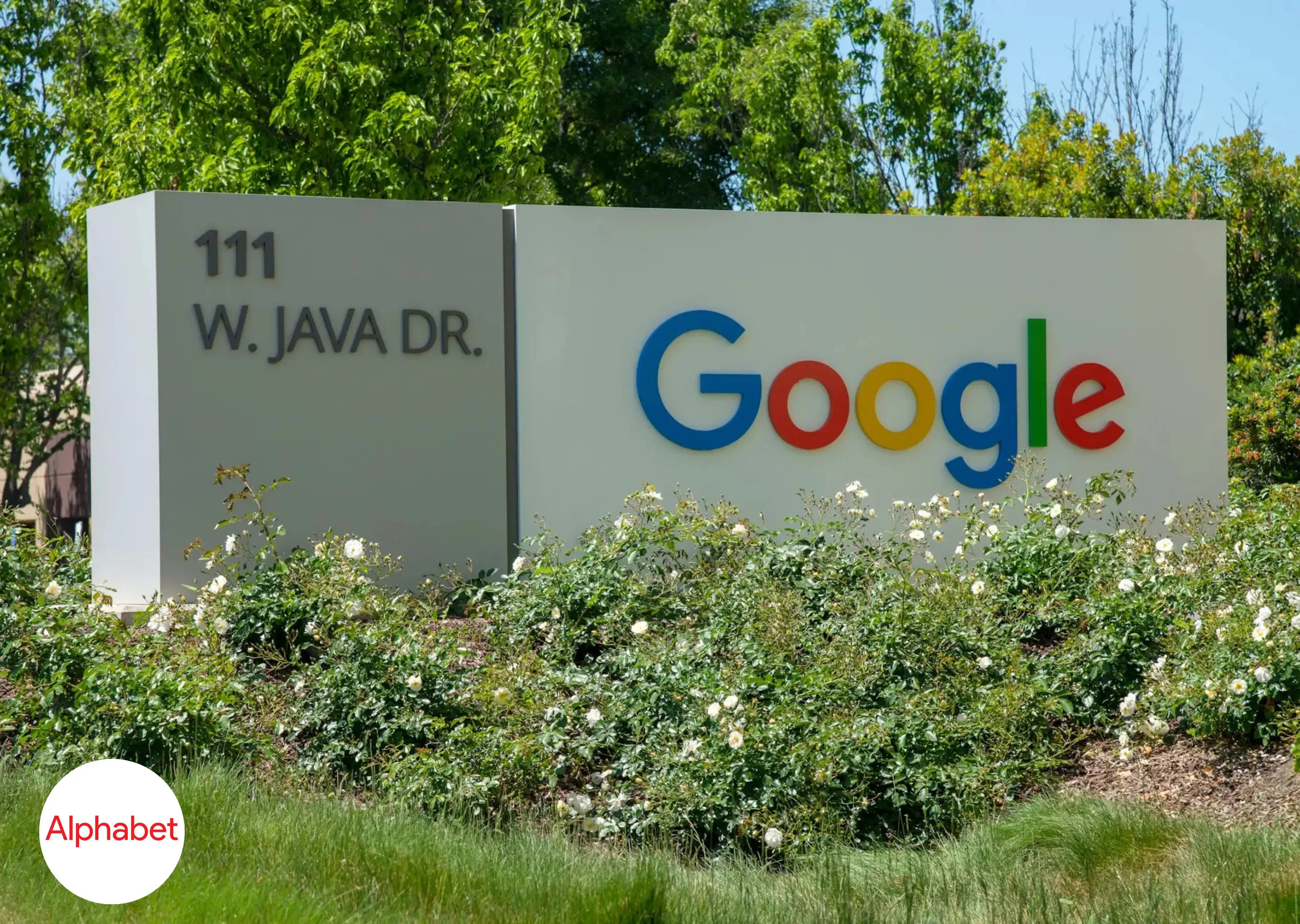Zuletzt aktualisiert am -
28. Januar 2026
Erhalten Sie Einblicke in Geschäftsmodell, globale Ausrichtung und Marktperformance, inklusive Positionierung in China.

Alphabet Inc. wurde 2015 als Holdinggesellschaft für Google und eine Reihe weiterer Technologieunternehmen gegründet. Das Unternehmen hat seinen Hauptsitz in Mountain View, Kalifornien, und wurde von den Google-Gründern Larry Page und Sergey Brin ins Leben gerufen, um das Kerngeschäft von Google von längerfristigen Unternehmungen zu trennen.
Google bleibt das Hauptgeschäft von Alphabet und umfasst Search, YouTube, Android, Chrome, Maps, Google Play, Google Ads und Google Cloud. Neben Google besitzt Alphabet „Other Bets“, die unabhängige Produkte und Forschungsprojekte verfolgen, darunter Unternehmen wie Waymo und Verily sowie Frühphasenprojekte, die durch X.
Das Ziel von Alphabet ist es, Struktur und Kapitalallokation für diese Mischung aus ausgereiften, Cash generierenden Plattformen und risikoreicheren Innovationsvorhaben bereitzustellen. In der Praxis ermöglicht dieses Modell Google die Skalierung globaler Verbraucher- und Unternehmensprodukte, während Alphabet ausgewählte langfristige Projekte finanziert, die auf neue Märkte abzielen.

Alphabet betreibt ein Holding-Modell, das sich um drei Berichtssegmente dreht: Google Services, Google Cloud und Other Bets. Google ist die Cash-Maschine von Alphabet, während die Struktur dabei hilft, Kapital auf ausgereifte Plattformen und Projekte mit längerfristigem Horizont zu verteilen.
Marktposition
Die Stärke von Alphabet beruht auf der Kontrolle wichtiger Vertriebskanäle und Produkte des täglichen Bedarfs. Google hielt im Dezember 2025 einen weltweiten Marktanteil von etwa 90,8 % bei Suchmaschinen, was die Nachfrage der Werbekunden und die Preisgestaltungsmacht sichert. Android war im Dezember 2025 mit einem Anteil von etwa 71,7 % auch weltweit führend bei den mobilen Betriebssystemen, was die Reichweite von Diensten wie Search, YouTube, Maps und Play stärkte. Der Wettbewerbsdruck ist am stärksten in den Bereichen digitale Werbung (Meta, Amazon, TikTok), Cloud (AWS, Microsoft) und KI-gesteuerte Suche, wo neue Schnittstellen die Art und Weise verändern können, wie Nutzer Informationen finden und wie Werbung geschaltet wird.

Alphabet hat nur begrenzt direkten Zugang zum chinesischen Verbraucher-Internet. Nach einem Streit um Zensur und Cyberangriffen stellte Google 2010 den Betrieb seines Suchdienstes auf dem chinesischen Festland ein, und Kernprodukte wie Search, Gmail und YouTube bleiben hinter der Great Firewall gesperrt.
Alphabet ist weiterhin durch lokale Niederlassungen und durch Werbung für in China ansässige Händler, die Kunden im Ausland beliefern, präsent. Die meisten in China verkauften Smartphones laufen mit Android-basierter Software, werden jedoch ohne Google Mobile Services ausgeliefert und sind auf inländische App-Stores angewiesen, da Google Play nicht zugänglich ist.
Da Produkte von Google in großem Umfang fehlen, dominieren inländische Plattformen wie Baidu im Bereich Suche und Tencent und Alibaba im Bereich digitale Dienste die digitale Wirtschaft Chinas.
Die Wachstumsagenda von Alphabet basiert auf zwei Prioritäten: der Verteidigung seines Gewinnpools in den Bereichen Suche und YouTube sowie der Skalierung KI-gesteuerter Produkte und Infrastrukturen in Google Cloud und dem gesamten Ökosystem. Das Management hat Gemini als gemeinsame Ebene für Verbrauchererfahrungen und Unternehmensangebote positioniert, mit KI-Übersichten und multimodalen Suchfunktionen, die das Engagement und die Relevanz von Anzeigen steigern sollen.
Zu den wichtigsten Wachstumstreibern zählen:
Herausforderungen für Alphabet
Alphabet sieht sich weiterhin mit kartellrechtlichen und plattformbezogenen Regulierungsmaßnahmen konfrontiert, darunter DMA-Verpflichtungen und laufende EU-Verfahren. Die kartellrechtlichen Auflagen in den Bereichen Suche und Werbetechnologie in den USA bleiben ein anhaltendes Problem. KI-Funktionen in der Suche führen ebenfalls zu neuen Konflikten mit Publishern und rechtlichen Auseinandersetzungen, wie die jüngsten Rechtsstreitigkeiten über KI-generierte Zusammenfassungen zeigen.
Dieses Unternehmensprofil wurde von Dominik Diemer verfasst